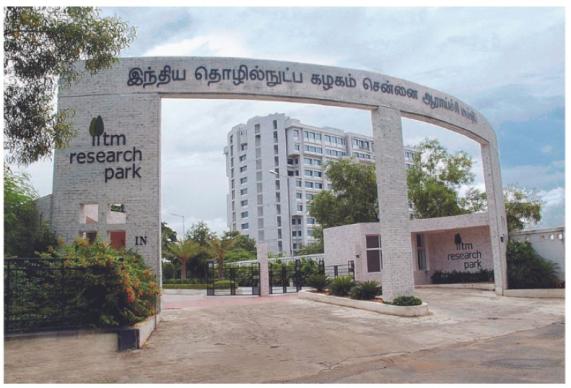
"Core Engineering Disciplines Must Be Nurtured"
- 26th Jun 2023
-
Business World
V. Kamakoti, Director, IIT Madras, ponders on the thrust areas in engineering that are for societal and country's benefit
"We are sensitising our faculty and students that protecting ideas is very important, irrespective of whether we monetise it or not. Our target is a patent a day"
How does IIT Madras top the national rankings year after year?
The secret is very straightforward. We have been working as a cohesive unit. There is a Tamil saying which translates to 'Together, you win'. So, the faculty, students, industry partners, alumni, Ministry of Education of the Government of India and the Tamil Nadu State Government, all of them have contributed to this. There are 5
parameters and 74 data points. On every data point the contribution comes from all of them. And we intend to continue to work cohesively to keep maintaining that record.
With AI causing big disruptions, and also with the massive layoffs by big corporations
in the last one year or so, how are engineering colleges bracing for the new challenges at this juncture?
Let me just put the perspective here. The core engineering disciplines need to be nurtured. Just look at the infrastructure projects that are happening in India and how the aerospace is growing. We need to have people working in these core areas. That is not happening because even students who are pursuing some interesting core subjects cross the barrier of AI-ML and go on to do high frequency training.
I am a computer science professor in the area of computer architecture. Even for my sub-field in computer science I am not getting students. People are blindly leaving their core disciplines in favour of high-paying jobs and cool environs. The parents should talk to their wards about jobs that are important for the country. That kind of passion needs to be inculcated among youngsters.
Also, the layoffs are not because of AI. The layoffs are happening because the corporates are resetting things because of economic slowdown.
So, how can engineering colleges enable a meaningful career for their students, one that gives financial empowerment and also impacts the society positively?
Two things are very important today. One is interdisciplinary education. As a computer scientist I have to understand many other fields. We have mechanical, metallurgy, robotics and embedded systems. So experts from these disciplines have sat together to find out solutions to remove manual scavenging. These are the kind of high-impact and socially relevant projects we are doing. So, colleges
will have to start thinking of an interdisciplinary approach, which will pave the way for innovation and entrepreneurship.
Also, we need motivation for innovation and entrepreneurship. We have seen a lot of success in the last three-four years -- the 3D building startup modular housing startup, AgniKul startup in space sector, our tutor startup on the hyperloop are some examples. Innovation and entrepreneurship are also very important for the country and for India to be a super power. That is the approach that engineering colleges should follow.
What have been some of the landmark transitions in the pedagogy, course structure and experience that students get at IIT Madras in the last five years? Moving forward, what elements of Covid-time teaching-learning does the institute plan to retain?
When we started the Swayam platform, we never thought it would become so critical during Covid. Today we see tens of thousands of people taking exams on it (8.40).
That experience motivated us to start the online programme in online electronic system and data science. So online degree programme with multiple exit options is a big thing.
The other thing that emerged during this period is medical technology. Many institutes have realised its importance -- IIT Kanpur IISc, IIT Guwahati and IIT Jodhpur. We have introduced bachelor of medical science and engineering. It's really a Covid lesson for us because we did some trials of a drug here with doctors. It was difficult to take it forward and prove to the world that it works. But it did work. Medical science and engineering is a critical area of work as health is very important.
What is the role that faculty is playing in research work? Also, what is the success of the faculty in filing patents?
We are sensitising our faculty and students that protecting ideas is very important, irrespective of whether we monetise it or not. Last year we touched around 240 patents. The patent application is very simple and the charge from an educational institution is Rs 1,800. And even if one wants a faster confirmation, the charge is approximately Rs 4,000. We are pushing for patents really fast and our target is a patent a day, which means 365 patents this year and 366 in the leap year, 2024.
We are striving to achieve Sustainable Development Goals (SDGs) by 2030. As the head of a premier engineering college, what approach would you suggest towards sustainability?
Fulfilling the commitments of SDGs is important, not just to prove to the world that we have done it, but for our good. Wherever I go, be it school or college functions, I talk about SDG, and I encourage the faculty to do the same. We have set up a school of sustainability addressing some of the key environment-related issues. And our BS data science and BS electronics systems programmes address the need for equitable, affordable education for all, which is SDG 4.

